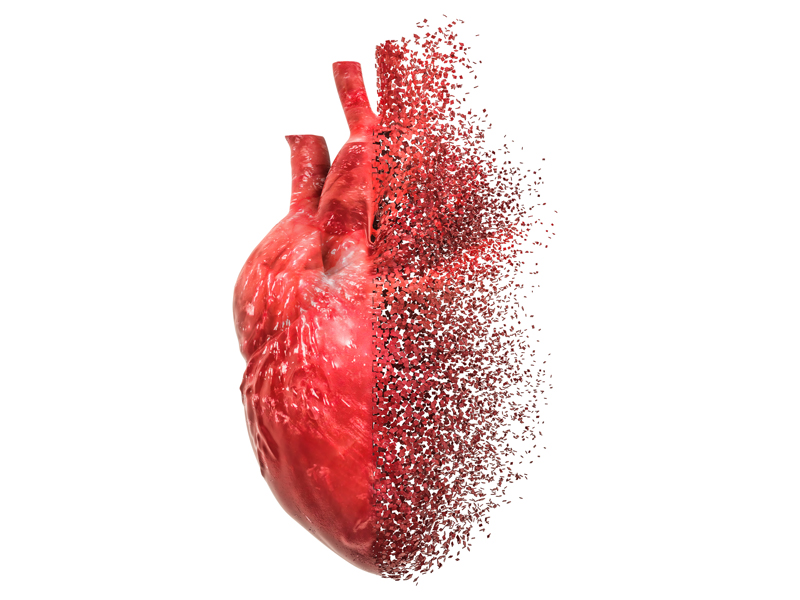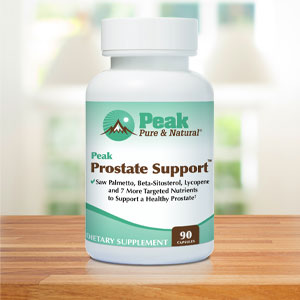Get Easy Health Digest™ in your inbox and don’t miss a thing when you subscribe today. Plus, get the free bonus report, Mother Nature’s Tips, Tricks and Remedies for Cholesterol, Blood Pressure & Blood Sugar as my way of saying welcome to the community!
Too much or too little sleep significantly increases heart attack risk

Everyone knows the biggest risk factors for cardiovascular disease…
Smoking. Age. High blood pressure. High cholesterol. Family history. Lack of exercise. Obesity.
No surprises here. The American Heart Association, the CDC and other health organizations have done their job hammering these risk factors home.
But there’s something else that’s seriously affecting your heart that’s not in the list of usual suspects. It’s a risk factor you may have caught wind of at some point. But probably don’t think about much when you’re taking steps to reduce your cardiovascular disease risk…
Your sleep habits.
Now, if this risk factor is on your radar at all, it’s probably because you heard that not getting enough sleep increases your risk of cardiovascular disease. But there’s more to the story than just that…
Getting too much sleep increases your risk of heart disease even more.
Sleeping too much is worse for your heart than sleeping too little
A new study from researchers at the University of Colorado, Boulder found that sleeping too much or too little increases your risk of a heart attack.
The study included data from 461,000 people. Researchers analyzed their genes, sleep habits, and medical records, then tracked their health for seven years. What did they find?
People who slept less than six hours a night were 20 percent more likely to have a heart attack than those who slept six to nine hours per night. And the less sleep people got, the higher the risk rose….
People who got five hours of sleep per night, for example, were 52 percent more likely to have a heart attack than those who slept seven to eight
Not that surprising really. But here’s the real shocker…
People who slept more than nine hours per night were a whopping 34 percent more likely to have a heart attack than those who slept six to nine hours per night.
And those who slept 10 hours per night were really pushing their luck. They had a 100 percent higher heart attack risk than people who slept seven to eight hours per night.
So, sleeping too much is more dangerous for your heart than sleeping too little. But neither is exactly a heart health best practice.
“This provides some of the strongest proof yet that sleep duration is a key factor when it comes to heart health, and this holds true for everyone,” said senior study author Celine Vetter.
Finding the sleep sweet spot
Just so you know, this study uncovered some exciting news too…
If you have a genetic risk for heart disease, you can lower it 18 percent just from getting enough sleep. Talk about a simple way to fight heart disease! Much easier than eating kale salads instead of pizza and digging out your “Sweating to the Oldies” VHS tapes.
But exactly how much sleep should you get for a healthy heart?
Well, based on the results of this study, it seems like seven to eight hours per night is the sleep sweet spot for cardiovascular disease risk. And anything under six or over nine, of course, is cardiovascular kryptonite.
Editor’s note: There are perfectly safe and natural ways to decrease your risk of blood clots including the 25-cent vitamin, the nutrient that acts as a natural blood thinner and the powerful herb that helps clear plaque. To discover these and other secrets of long-lived hearts, click here for Hushed Up Natural Heart Cures and Common Misconceptions of Popular Heart Treatments!
Sources:
- Sleeping too much — or too little — boosts heart attack risk — MedicalXpress
- Sleep Duration and Myocardial Infarction — Journal of the American College of Cardiology
- Heart Disease Facts — Centers for Disease Control and Prevention
- Understand Your Risks to Prevent a Heart Attack — American Heart Association














